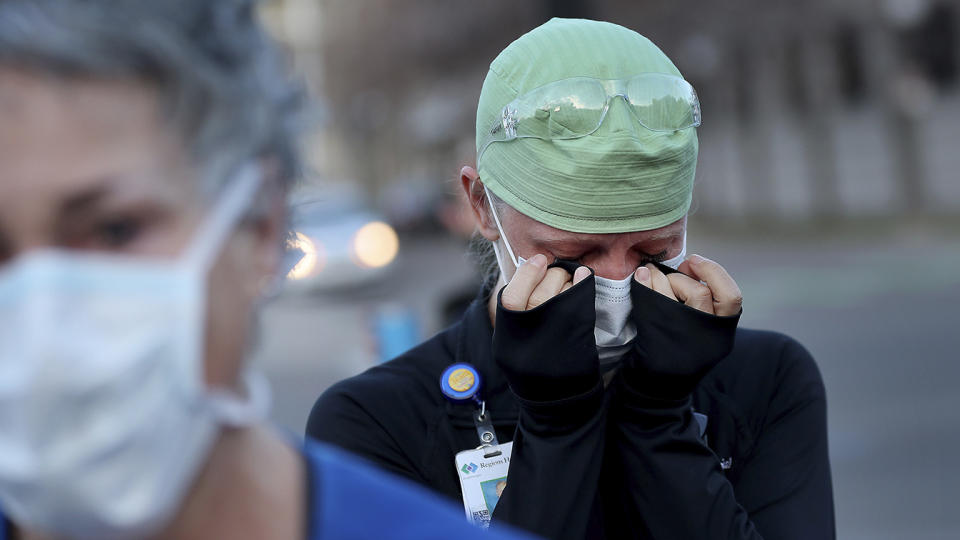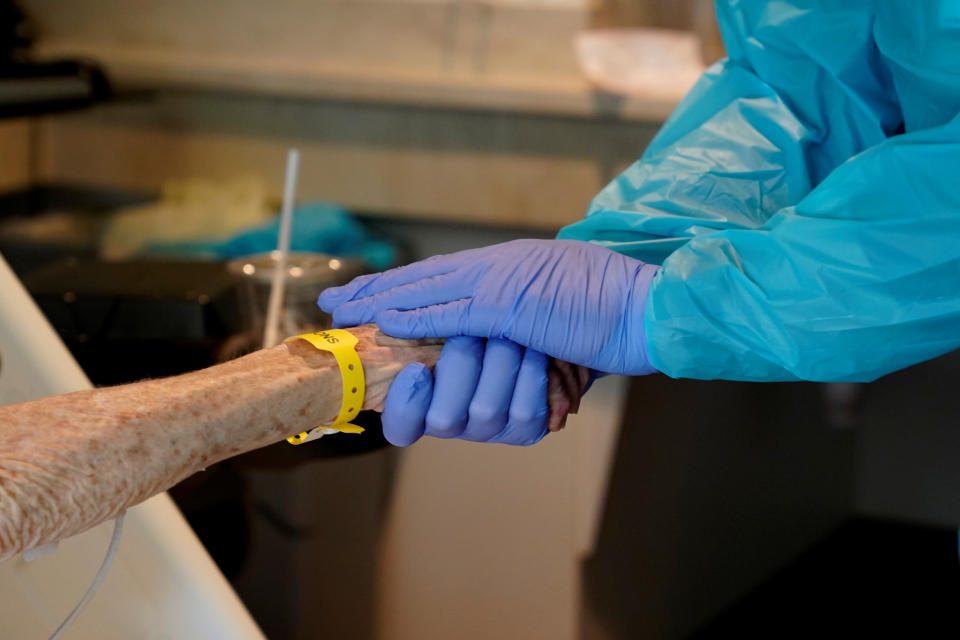In coronavirus pandemic, for health care workers, despair is only human
“Despair,” wrote Graham Greene, “is the price one pays for setting oneself an impossible aim.”
The coronavirus contagion will last for months and affect hundreds of thousands of very sick patients. The frontline providers — doctors, nurses, physician assistants, nursing aides and others — are also exposing themselves to the infection and taking great risks. The circumstances set up a toxic mix for many of them, not only in risking disease but also in a feeling of helplessness and despair that, without the right support, can last a lifetime.
Like an implacable invader, the virus is making its way south from New York to Philadelphia and Washington. Detroit and Chicago may not have seen the peak. Decisions by several governors have put more Americans at risk in the South. Even as providers must function without enough personal protective equipment, they must care for those who are most vulnerable and whose numbers threaten to overwhelm local health care systems.
Who should be saved when not all can be saved? So far, rationing of scarce resources like ventilators has not taken place, though unexpected burdens have been placed on supplies of kidney dialysis machines. Hospital administrators in other potential hot spots should prepare for the worst, not just in terms of the material but also their human resources.
In the weeks ahead, health care workers may experience even more distress over actions or omissions that violate their sense of duty to their patients, or even their moral and ethical codes. Often called moral injury, the result is pervasive anxiety, depression, shame or self-doubt. Moral injury is burnout on steroids.
Especially for physicians, the detached, dispassionate manner promulgated in medical education and often appropriate for patient care is a special challenge. It can be a short-term Band-Aid for moral distress, but it is not a solution.

The insidious and inescapable problem of moral injury is that it strikes despite the knowledge that the circumstances were impossible to avoid, that one did the best one could, both technically and ethically. Moral injury is not posttraumatic stress disorder because it is not a pathology. It is a normal reaction to a situation in which every possible decision has grievous consequences.
Throughout history, soldiers as well as their leaders have wrestled with the moral and ethical consequences of their actions, particularly when deciding who lives or dies. Moral injury is a common experience of combat veterans, most recently in Iraq and Afghanistan. The soldiers coming out of Vietnam expressed similar worries and misgivings about their actions or inactions.
As in the military, health care leadership should be sensitized to the burdens of the frontlines. That involves education, preparation and training at all levels. Institutional leadership should provide frontline care providers guidelines for treatment and what protocols to follow. They can be helpful, much as rules of engagement are helpful for soldiers in a firefight. They provide a sense of order in an inherently chaotic situation.
When those protocols fail to provide a specific formula to guide a decision, the burden falls on the individual, setting the stage for moral distress. Denial of moral injury is no defense. But it can be managed. One key is to acknowledge that it is expected in the course of performing duties and carrying out responsibilities. In fact, immunity to moral distress is itself a mark of psychopathy. Acknowledging moral injury as a normal response to decisions one has had to make in a tragic situation is the first crucial step.
Other lessons learned from military medicine help assuage the stress and distress. The military sets up behavioral health teams that are organic to the fighting units and embedded in daily operations. These teams are composed of psychologists, psychiatrists and social workers who can engage leadership and decision makers.

Few hospitals have those resources, but they can take some similar steps. Hospital leadership can have frank discussions with staff to assess their worries and needs. Next, they can identify a wellness adviser on each floor and unit to address breaks and sleep and to communicate about anxieties. They can help mitigate the adverse impact of the day-to-day operations and impossible decisions. One hospital in Connecticut has already established what could be a model program.
We have learned that society helps assuage the distress and moral injury that the frontline experiences. The soldiers returning from Vietnam were blamed for the war they were drafted to fight and many did not support. The fighters returning from Iraq and Afghanistan, a volunteer force, have had much more robust support.
The health care workers fighting the “war on the virus” deserve unqualified and public acknowledgment for their selfless service. It is especially tough for them, and they should not be forgotten.
Jonathan D. Moreno is a professor of medical ethics and health policy at the University of Pennsylvania. Follow him on Twitter: @pennprof
Stephen N. Xenakis, a psychiatrist and retired Army brigadier general, serves on the executive board of the Center for Ethics and the Rule of Law at the University of Pennsylvania and is an adjunct professor at the Uniformed Services University of Health Sciences. Follow him on Twitter: @SteveXen
_____
Click here for the latest coronavirus news and updates. According to experts, people over 60 and those who are immunocompromised continue to be the most at risk. If you have questions, please refer to the CDC’s and WHO’s resource guides.
Read more:


